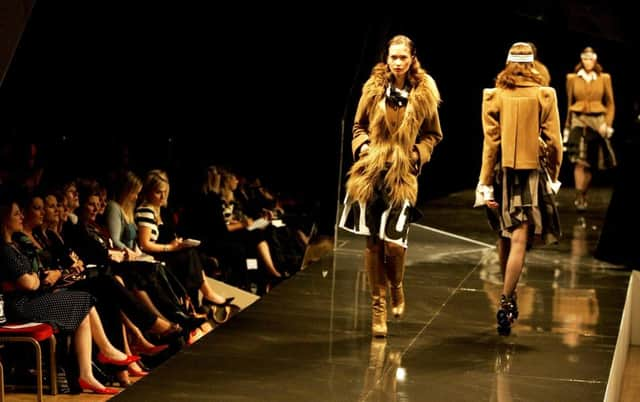Circularity is key to future textile industry


It’s estimated to be worth £1 billion, with ambitions to grow by 50 per cent by 2020. The fashion industry relies heavily on raw materials, and it’s essential that it reduces or captures the waste being produced, and looks for new sources or methods of producing materials.
There’s a growing movement to move away from the traditional make-use-dispose model which is less sustainable, towards a circular economy, where materials are kept in high value use for as long as possible.
Advertisement
Hide AdAdvertisement
Hide AdScotland’s textiles industry has a reputation for quality and the export of luxury goods has been growing strongly since 2011. Although increased production could mean greater environmental impacts, Scotland is already at the forefront of developments to reduce these. This is evident from the Edinburgh International Fashion Festival’s decision to focus on sustainability this year. The festival is partnering with Zero Waste Scotland, supported by the Scottish Government, which works with the textiles and retail sector on circular approaches. The festival is Scotland’s opportunity to profile these developments in tandem with the quality, expertise and heritage of the Scottish industry. For example, products made from durable textiles like Harris Tweed are the antithesis of “fast fashion”.
Zero Waste Scotland works with manufacturers, designers and retailers in Scotland to show how its innovative products could encourage a more circular approach across the board.
For example, creating demand for clothing designed using durable materials, backed by guarantee and with repair and upcycling in mind. It’s already common to hire a kilt for a wedding, but how would we hire dresses or handbags; or lease school uniforms returning them for repair?
Tying all of this together will be a panel discussion tomorrow examining whether a sustainable fashion industry is achievable. With panellists from Ikea, Pringle, H&M and more, this is a great opportunity to debate the possibilities.
• Dr Aileen McLeod is minister for the environment edinburghinternational fashionfestival.com